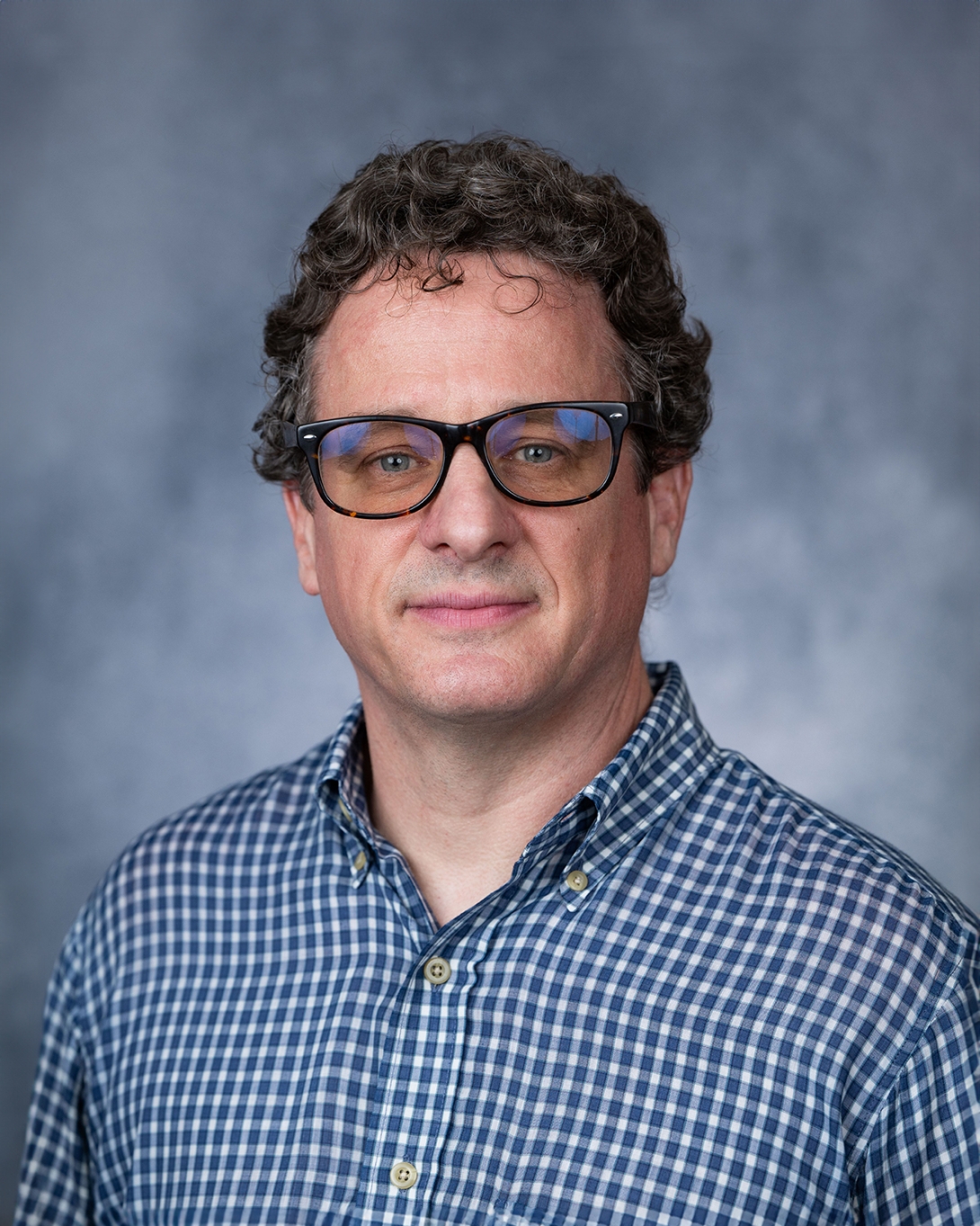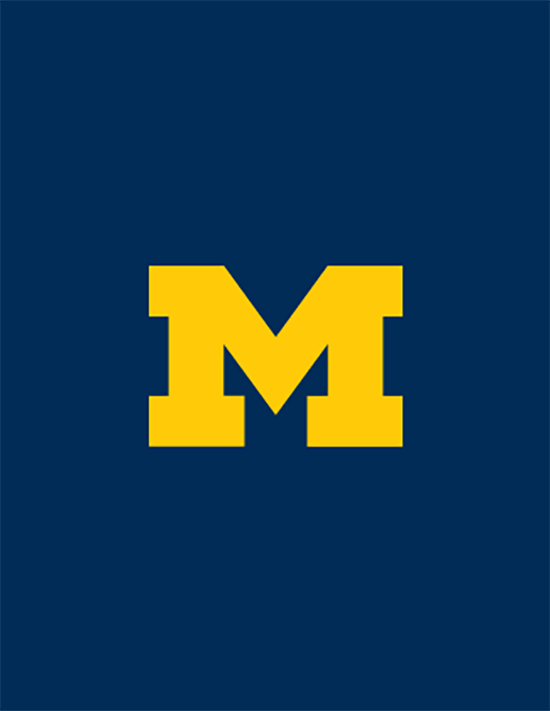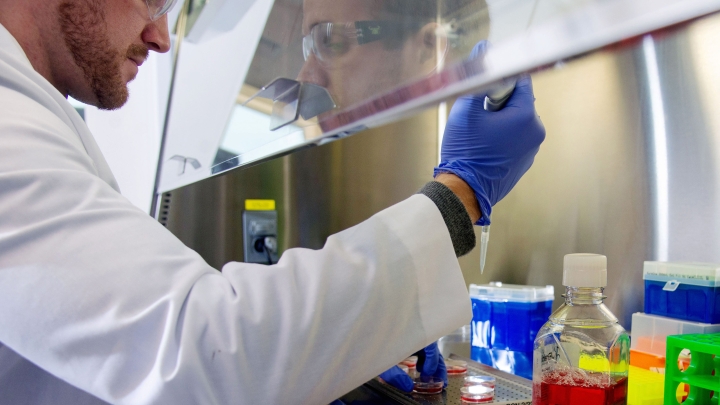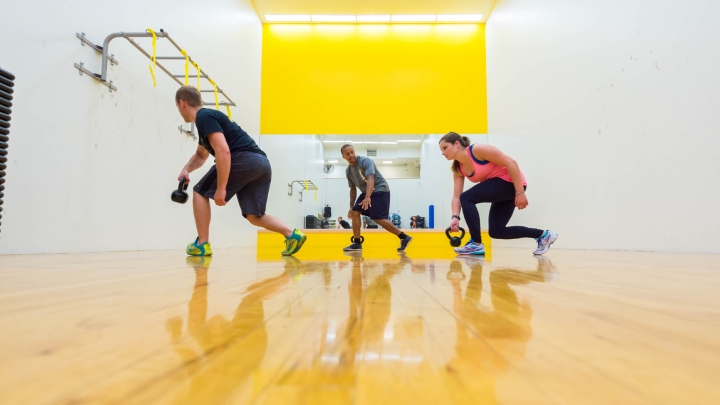
The U-M Medical School Department of Molecular & Integrative Physiology PhD program allows students to conduct research across various fields, from cell and molecular biology to whole-animal integrative physiology.
Additionally, students learn advanced experimental, mathematical, and computational techniques essential for physiological research. The curriculum emphasizes developing teaching, critical thinking, and presentation skills, all supported by a faculty committed to excellence.
Student input in departmental functions and policy-making within the PhD program is highly valued, making our program more dynamic, enriched, and diverse while fostering professional development and leadership skills.
Leadership training is integrated into the program through roles such as graduate student representative to faculty meetings and student member of the Graduate Committee. Students also take part in selecting and hosting keynote speakers for the Research Forum and organizing visits for prospective graduate students. Our program actively supports community science outreach to underserved schools, promoting engagement beyond the university.
Our students regularly interact with visiting scientists and seminar speakers during student luncheons, providing additional networking and learning opportunities. Recognition through departmental, university, and national awards is obtainable, and various informal social activities help build strong bonds between students and faculty, ensuring a supportive and collaborative environment.
Our PhD program enables students to conduct research across fields ranging from cell and molecular biology to whole-animal integrative physiology while developing essential experimental, mathematical, and computational skills.
SEEK is an MIP student-led outreach program. The goal is to give our students the chance to help bridge the gap in science education by providing hands-on learning for kids in local high-need, low-resource schools lacking a science curriculum. SEEK grew out of the belief that it is our responsibility to help provide all kids with the access to opportunities that will empower them to reach for their dreams. There are multiple levels of volunteering in the program.
- Curriculum Team – developing and implementing a year-long curriculum for Eastbrook
School which currently has no science curriculum. The lessons will be taught by graduate students, 1.5 hours once every two weeks to over 100 students. - Backyard Brains Team – Support from the Office of Health Equity and Inclusion allowed SEEK to purchase five Backyard Brains mobile neuroscience labs. These labs will be developed and taught on off-weeks in the year-long curriculum.
- Physiology Fun Day Event – Two single day events per year focused on exposing 3rd and 4th graders to the various organ systems with active learning experiments and activities.
Roughly once each semester, MIP students, faculty and postdocs are invited to gather at a local pub at the end of the day. These gatherings encourage social interactions and unstructured scientific and academic discussions in an informal and relaxed atmosphere.
Tailgating has a rich history and is an important tradition on the Ann Arbor campus. Once a
season, MIP students and friends of MIP gather to spend a beautiful fall afternoon celebrating Michigan Football in the shadow of the Big House. You might even see the Graduate Program Director or Department Chair decked out in their maize and blue.
MIP students organize an MIP sports team (the “Phizz”) for various intramural sports: softball, volleyball, broomball, mini-soccer and wallyball (several new sports teams will be organized in the current year). All students are welcomed and encouraged to participate in a team and to organize an MIP sports team. Everybody has fun, no matter what the skill level.
MIP hosts student lunches for a number of different occasions. These include: meetings with the Chair of the Department or Graduate Chair to discuss policy and developments or to budget the use of the Graduate Program discretionary fund; to discuss and select the keynote speaker for the Graduate Research Symposium. In addition, when the speaker for the MIP seminar series is from outside of the University, he or she is invited to have lunch with students. The MIP Graduate Program expects students to make every effort to attend these lunches as it provides opportunity to interact with speakers as well as for the visitors to learn more about the Department and Graduate Program. In addition, students are invited to have lunch with faculty recruits during their visits to MIP; this allows the candidate to gain appreciation for the quality and vitality of the MIP Graduate Program and for students to voice their views on the candidate.
Early in the fall semester, MIP holds an assembly to introduce the 2 nd year students matriculating from PIBS as well as the new recruits entering PIBS who are interested in MIP, new faculty members, master’s students and others who are new to MIP. The MIP awards are presented (Bean Award for Academic Excellence, Vander Teaching Award, Williams Service Award, Schwartz Translational Research Award) and other achievements of MIP students are recognized.
Second-year students, together with the Graduate Program Coordinator, organize the annual MIP departmental picnic, usually held at one of the local Metro Parks on a weekend in late September or early October. All faculty, students, staff, families and guests are invited. The Department provides food and beverages. The annual faculty versus student softball game is the highlight of this event.
This event is typically held shortly after the end of the winter semester with the exact date set based on the availability of the keynote speaker who is nominated and selected by the students. Generally, a student in the 3 rd year or above coordinates this event with the assistance of the Graduate Program Coordinator and the Graduate Program Director. The student host is responsible for extending an invitation to the keynote speaker, organizing the visit, arranging faculty interviews, and escorting the visitor while in town. Other graduate students are generally invited to attend a dinner and to have breakfast with the speaker, and all graduate students attend a lunch with the speaker. Selected 10-min presentations are given by finalists for the Davenport Research Award (winner announced at the session of the keynote address). All students are expected to participate in the poster session, and graduate students currently or previously funded by the Systems and Integrative Biology Training Grant are required to do so.
Recruitment of incoming students to MIP is coordinated by PIBS. PIBS offers two recruiting
weekends one in January and one in February. MIP faculty and students on the Graduate
Committee serve as the PIBS Admissions Committee, and MIP students host applicants
invited during the recruiting weekend. All MIP students are heavily involved in recruiting
weekend; this is highly important in helping our visitors to capture the spirit of MIP. Events of this weekend currently include a welcome dinner on Thursday evening with the visitors and their host student, one-on-one interviews with faculty members, a Friday luncheon attended by all students in the Graduate Program, and a dinner reception Friday evening followed by a social outing organized by MIP graduate students. Saturday morning includes a combination brunch/faculty poster session/open house and from here the recruits leave for the airport.
This is an informal gathering in a relaxed setting (currently the back yard of the Department
Chair) at the end of the academic year to enjoy each other’s company and to recognize the
accomplishments of MIP students. The BBQ is held in the late spring, and includes the
undergraduate summer research fellows.
Our student handbook is an in-depth guide detailing the PhD program's academic requirements, departmental events, graduate student commitments, and more.
All of our graduate students who are in good academic standing are supported financially throughout the duration of their graduate studies. Each student receives tuition, an annual stipend of $41,308.50 and health care benefits. After the PIBS year, students continue to receive the same level of funding and benefits. This support is drawn from a variety of sources, including:
- Department funds
- University of Michigan funds
- Training grants
- Research grants
- Individual fellowships
Health Benefits: GRADCARE
One of the advantages of training in a world-class health system is that you have personal access to expert care when you need it. As a graduate student, you and your eligible dependents enjoy the same coverage available to our faculty and staff.
The average time to PhD for graduate students in Molecular & Integrative Physiology is 5.5 years.
Graduate students generally live in apartments in the Ann Arbor area. Apartments within walking distance as well as a short bike, ride, or drive away are plentiful. University of Michigan family housing is also available. The University has a very helpful housing office to assist students in finding a place to live. The city of Ann Arbor also has information available. Our current graduate students are a great source of advice on the best places to live.
The University as well as the Ann Arbor Transportation Authority run extensive bus systems. Although many graduate students have their own cars, they are not necessary to get around the University of Michigan and Ann Arbor. Biking is very popular -- the City of Ann Arbor was recognized by the League of American Bicyclists for its bicycle-friendly policies. Most graduate students live within walking or biking distance of the University and shops and services and find that they don't need to have a car.
Program in Biomedical Sciences (PIBS) is a gateway program that organizes the admissions of graduate students for 14 different PhD training programs at the U-M Medical School. Graduate students remain in PIBS their first year before joining Molecular & Integrative Physiology or another graduate program. During that first year, students can choose to focus their studies in a particular area, such as Molecular and Integrative Physiology, or they can explore a couple of different programs before making their choice.

Professor of Molecular and Integrative Physiology
Director Graduate Studies, Molecular and Integrative Physiology
Professor of Internal Medicine
Professor of Emergency Medicine
Professor of Biomedical Engineering



Our department is home to nationally-recognized research programs in basic and translational aspects of physiology.

We believe that nurturing personal well-being can promote success in science and in life. The University of Michigan offers many health and wellness services and activities to learners, employees, and their loved ones.

We find a new reason to love Ann Arbor nearly every day — year-round outdoor activities, cultural experiences, a growing food scene, and a welcoming, family-friendly atmosphere are just a few that come to mind.